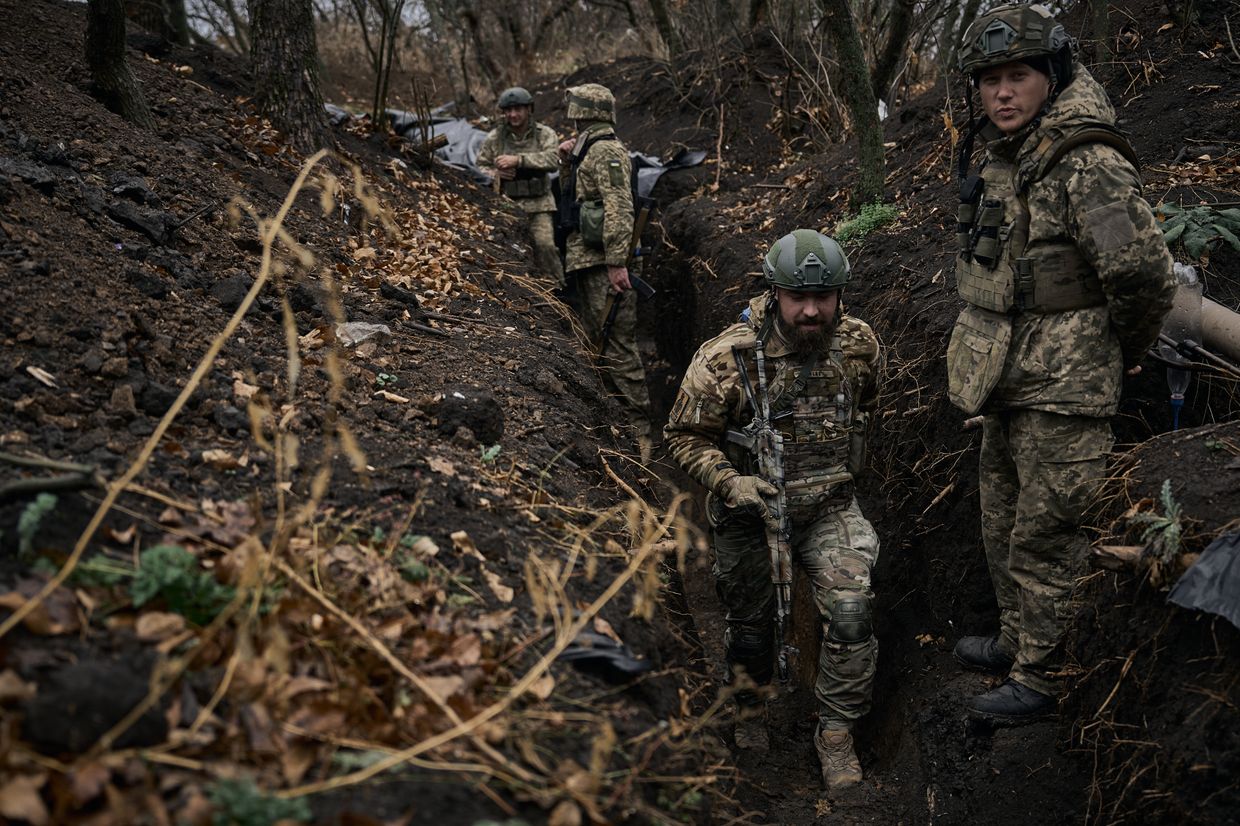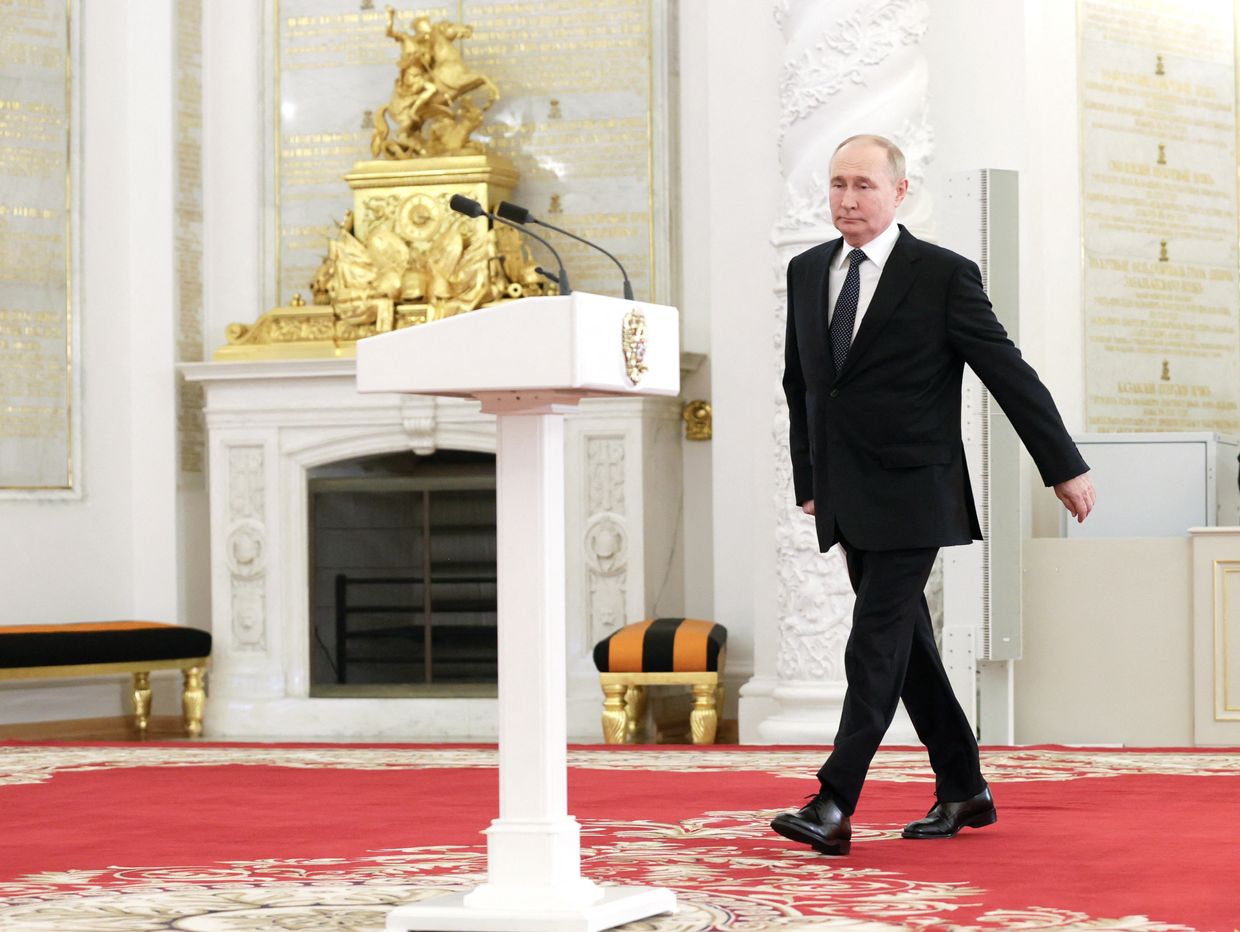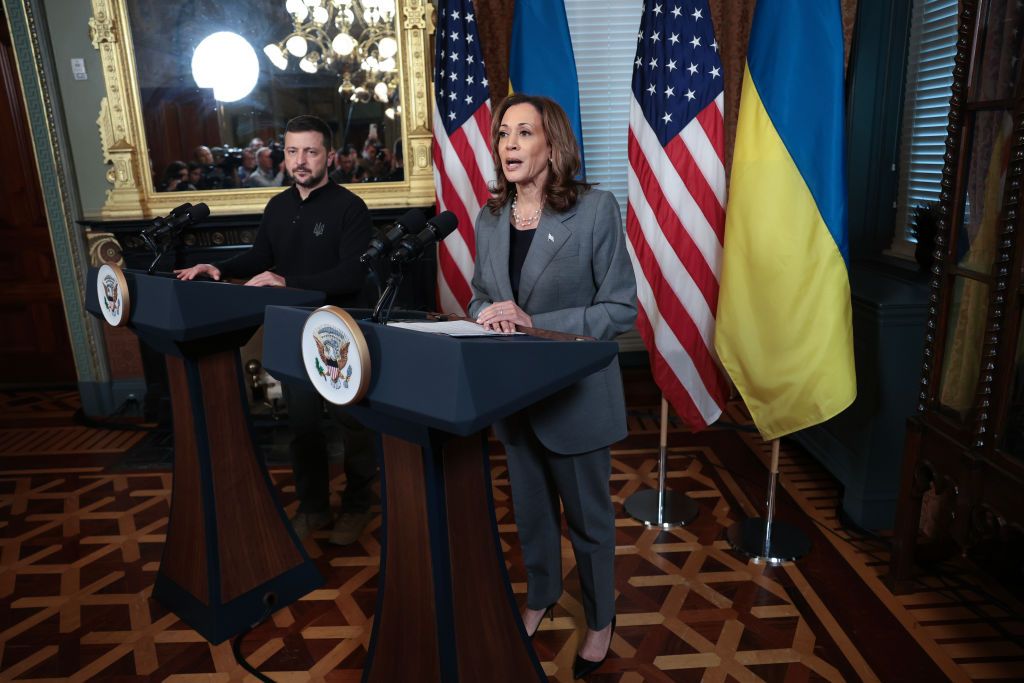Belarus Weekly: Lukashenko admits to decade-long cooperation with occupied Donetsk

In a meeting with a top Russian militant, Belarusian dictator Alexander Lukashenko admits to a decade-long cooperation with occupied Donetsk and complicity in hosting abducted Ukrainian children.
The U.S. condemns Belarusian state-owned TV channel for broadcasting “repentance” of U.S. citizen turned Belarusian political prisoner Yury Ziankovich.
Far-right German politician Jörg Dornau accused of using jailed Belarusian activists for cheap labor at his onion plantation in Belarus.
European Parliament adopts new resolution on Belarusian political prisoners, urges Serbia not to extradite the Belarusian activist at the Lukashenko regime’s request.
Austria’s Raiffeisen Bank agrees to sell its stake in its Belarusian subsidiary to UAE investors, marking a full exit from the Belarusian market.
International Chess Federation FIDE reaffirms the ban on the participation of Russia and Belarus in its tournaments.
Lukashenko admits years of cooperation with Russian-occupied Donetsk, defends hosting abducted Ukrainian children in meeting with Russian proxy leader
Belarusian dictator Alexander Lukashenko has admitted to cooperating with the proxy authorities in Ukraine’s Russian-occupied Donetsk Oblast for over a decade, also reaffirmed his complicity in hosting children abducted by Russia from occupied Ukrainian territories.
Lukashenko made the remarks during a meeting in Minsk on Sept. 19 with Denis Pushilin, the Kremlin-installed leader of the Russian-occupied Ukrainian territory.
While Minsk hasn’t formally recognized Russia's claim to have annexed the occupied territories of Ukraine, Lukashenko claimed that Belarus “has always cooperated” with occupied parts of Donetsk Oblast “for the past ten years.”
The Belarusian dictator also admitted to hosting Ukrainian children abducted by the Russian authorities while claiming the abductions were for the purpose of “recreation.”
“We host your children for treatment and recreation,” Lukashenko’s press office quoted him as telling Pushilin. “However, they threatened me with legal action for allegedly stealing your children. So I told both Ukraine and the United States, ‘Please come and find at least one stolen child. It runs contrary to our principles.’”
Ukraine’s Foreign Ministry condemned the meeting and “Lukashenko’s hypocritical rhetoric,” underscoring the dependency of Belarus’ policies on the Kremlin.
“The stance of the current Belarus authorities with regard to the sovereignty and territorial integrity of Ukraine is being dictated exclusively by the Kremlin and has nothing to do either with international law or the international obligations of the Republic of Belarus,” the Ukrainian ministry’s statement reads.
This was Pushilin’s third visit to Belarus.
Following the previous meeting of the two on April 18, 2023, in Minsk, Ukraine recalled its Ambassador, Ihor Kyzym, for consultations. Kyzym did not return to the Belarusian capital and was appointed Ambassador-at-Large to support Kyiv’s dialogue with the Belarusian opposition in exile.
Belarus, a close Kremlin ally, has been involved in the abduction of Ukrainian children from the Russian-occupied parts of Ukraine. Belarus officials have repeatedly confirmed their participation in the abductions, while describing the deportations as “recuperation trips.”
According to official estimates, Russia has abducted over 20,000 children from the Russian-occupied parts of Ukraine, although the true number is likely much higher. The International Criminal Court (ICC) in The Hague has issued an arrest warrant for Russian President Vladimir Putin and Russian Children’s Rights Commissioner Maria Lvova-Belova for their role in organizing the illegal transfer of Ukrainian children to Russia.
The European Parliament has called on the ICC to issue a similar arrest warrant against Lukashenko for his complicity in the crime.
Several human rights organizations, including Freedom House, Ukraine's Regional Human Rights Center, and Ukraine’s Zmina Human Rights Center, have announced that they submitted to the ICC on Sept. 23 new evidence of the abduction, brainwashing, and militarizing of more than 2,219 children from Russian-occupied Ukrainian territories.
US condemns Belarusian TV for showing US citizen, jailed on political grounds, ‘repenting’
The U.S. charge d'affaires at the embassy in Minsk, Peter Kaufman, has condemned a Belarusian state-owned TV channel's broadcasting of a documentary featuring U.S.-Belarusian citizen and political prisoner Yury Ziankovich.
During the broadcast, Ziankovich was shown pleading for help from U.S. presidential candidates Kamala Harris and Donald Trump.
“I resolutely condemn the Belarusian regime’s reprehensible showing of a detained U.S. citizen on state media for propaganda purposes, and refute the baseless claims made in the program, " reads a statement issued by Kaufman on Sep. 20. “The regime's history of using coercive tactics to produce content like this strongly calls into question the voluntary nature of the U.S. citizen's participation.”
Kaufman reiterated the U.S. government's long-standing advice to U.S. citizens to avoid traveling to Belarus.
The statement was released after the airing on Sep. 19 of the film, titled “Murderous Conspiracy,” on Belarusian television. It shows U.S.-Belarusian citizen and lawyer, who was sentenced to 11 years in prison on trumped-up charges of conspiracy to seize power, appealing to Belarusian dictator Alexander Lukashenko for a pardon, as well as pleading to candidates Harris and Trump to help him return to his family in Houston, Texas.
Filmed in prison, Ziankovich is said to have lost a significant amount of weight. Likely under duress, in the film he “confesses” to conspiring to seize power and gives details of alleged plans to overthrow the Lukashenko regime.
The documentary aired as 115 Belarusian political prisoners “pardoned” by Lukashenko were released. According to Belarusian political analyst Valer Karbalevich, the broadcast was a “bargaining offer to Washington” from Lukashenko, who is likely testing the West's readiness for negotiations with his regime.
As Lukashenko signed the fourth round of “pardons” releasing dozens of Belarusian political prisoners, his propaganda mouthpiece, Yury Vaskrasenski, urged “the West (to have) discussions” so that the process could continue.
Over 1,300 political prisoners remain behind bars in Belarus following Lukashenko’s four-year-long crackdown on dissent after the 2020 presidential election, which he claimed to have won but which was condemned by observers as neither free nor fair.
German lawmaker’s onion farm in Belarus ‘used jailed activists for cheap labor’
Jörg Dornau, a member of Saxony’s State Parliament from the far-right Alternative for Germany (AfD), uses Belarusian convicts – including those jailed on political charges – as labor on his onion plantation in Belarus, the independent Belarusian news outlet Reform.by claimed on Sept. 24.
According to the outlet’s investigation, Dornau’s firm, Zybulka Bel, an agriculture company cultivating several hundred hectares planted with onions, signed a contract with the local Center for the Isolation of Offenders in Lida in western Belarus.
As the Lukashenko regime ramped up the repressions against civil society following the disputed 2020 presidential elections in Belarus, the Centers for Isolation of Offenders have regularly held Belarusians sentenced to days of administrative arrest on politically motivated grounds. According to Human Rights Center Viasna, around 30,000 Belarusians underwent detention in 2020 alone.
One of the laborers at Dornau’s farm, sentenced to 15 days of arrest for liking an online post critical of the regime of Belarusian dictator Alexander Lukashenko, described the working conditions as harsh. For 5 euros ($5.60) per day, the detainees sorted onions in an underground warehouse in freezing temperatures. The working day commenced at 7 a.m. and finished at 6 p.m. with no breaks or meals provided.
According to the report, the labor was not forced; Dornau’s foreman collected signed consent forms for daily work and monitored the quality of the labor performed. The funds prisoners earned were reportedly used to cover the costs of their detention. As of 2023, the cost of administrative arrest that prisoners are obliged to pay is roughly $5.70 per day.
Dornau himself is claimed to have inspected the work of the farm in person at least once, with one prisoner describing a visit by a “tall, bald man” similar to Dornau arriving in a German-registered car.
Dornau’s press office has declined to comment on Reform.by’s report.
Dornau established Zybulka Bel’s operations in Belarus in October 2020 while nationwide pro-democracy protests were still sweeping the streets of Belarus. His business relations with Belarus were not revealed until April 2024. While conducting business is not prohibited for members of parliament under Saxony’s legislation, Dornau was fined 20,862 euros for failing to disclose his economic interests.
The European Union has imposed multiple rounds of sanctions on Belarus for the Lukashenko regime’s ongoing human rights violations and its complicity with Russia’s aggression against Ukraine.
European Parliament urges Serbia not to extradite Belarusian activist
The European Parliament issued a resolution on Belarusian political prisoners on Sept. 19, calling on Serbia to refrain from extraditing Belarusian activist Andrey Hnyot, and noting that the Belarusian regime was abusing Interpol’s arrest warrant system.
Detained in October 2023 under an Interpol “Red Notice” international arrest warrant, Hnyot has for a year been battling in the Serbian courts to avoid being extradited to Belarus, where, he claims, he would face prison and torture. While the Serbian Appeals Court recently ordered a retrial, the risk of his eventual extradition remains.
MEPs also expressed concern that the estimated 300,000 Belarusians who have fled Belarus since 2020 now risk political persecution in absentia.
The EU parliament resolution, adopted with 549 votes in favor, 21 against, and 37 abstentions, demands that the Belarusian authorities unconditionally release all political prisoners, and provide lawyers, family members, and the Red Cross access to the most prominent political prisoners held incommunicado for over a year. It also calls for further sanctions against those involved in organizing repression in Belarus.
Following the disputed 2020 presidential election, which Lukashenko claimed to have won by a landslide, mass protests erupted across Belarus. The protests were met by a violent government crackdown, leading to mass arrests and detentions of over 65,000 Belarusians.
Human rights organizations say some 1,300 political prisoners are now behind bars, and around 300,000 Belarusians are in exile.
Austria’s Raiffeisen Bank agrees to sell its Belarusian subsidiary

Austria’s Raiffeisen Bank International (RBI) has signed an agreement to sell its 87.74% stake in Priorbank, its Belarusian subsidiary, to United Arab Emirates investor Soven 1 Holding Limited, the bank’s press office announced on Sept. 20.
The deal, reached after six months of negotiations and first announced on Feb. 14, is now subject to regulatory approval. Upon completion, the deal will mark RBI’s full exit from the Belarusian market, reducing “operational complexity in line with its risk mitigation strategy in Eastern Europe,” as per a press release from the bank.
RBI expects to suffer a loss of around EUR 300 million ($335 million), which it said “essentially results from the difference between the purchase price and the book value of the equity of Priorbank.”
The last major Western bank remaining in Russia and Belarus – the Kremlin’s accomplice in its aggressive war against Ukraine – RBI has come under heavy criticism from Western institutions for continuing to do business in Russia and Belarus, and thus indirectly financing Russia’s war by paying taxes to those countries.
Russia and Belarus to remain banned from FIDE chess events
The General Assembly of the International Chess Federation FIDE voted on Sept. 22 to uphold a ban on chess teams from Russia and Belarus competing in international events.
FIDE banned both countries from its events in the wake of Russia's full-scale invasion of Ukraine in February 2022, and prohibited holding any of its events on Russian and Belarusian territory.
However, individual Russian and Belarusian players were allowed to participate under the neutral FIDE flag.
During a meeting in Budapest, 21 delegates supported lifting the ban, whereas 41 countries voted not to admit players at all. With 66 votes in favor, the federation supported a last-minute proposal to consult the International Olympic Committee (IOC) to allow some Russian and Belarusian disabled and junior teams to participate in international chess events.
The FIDE Council still has to approve the decision, although there is no expectation that it will be overturned.
The proposal to reinstate Russia and Belarus’ participation in FIDE tournaments was made on June 5 by the Kyrgyz Chess Federation. It provided no arguments to support its proposal.
Ahead of the General Assembly of the International Chess Federation, 13 Ukrainian chess players sent a letter to FIDE supporting the ban of Russian and Belarusian players from competitions due to the ongoing invasion of Ukraine.
During FIDE’s Greatest Of All Time award in Budapest, the award’s winner, Grandmaster Magnus Carlsen, spoke against reinstating the Russian and Belarusian chess federations.














